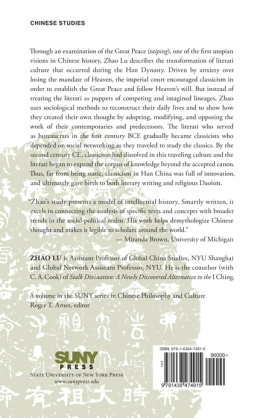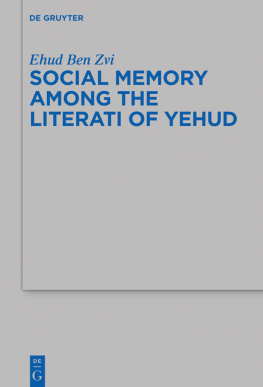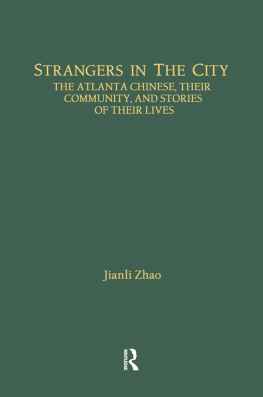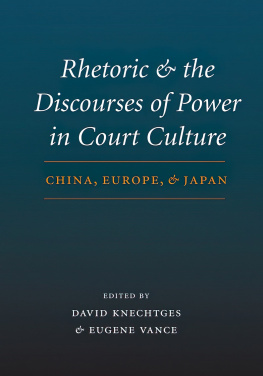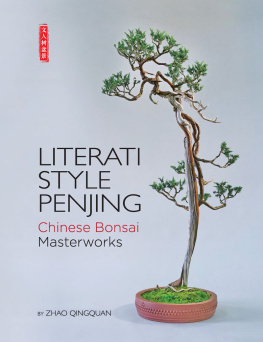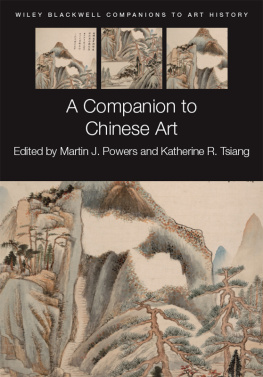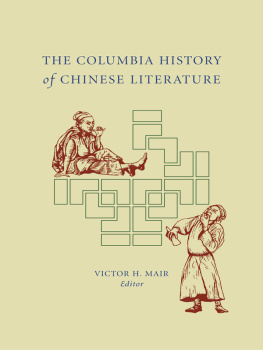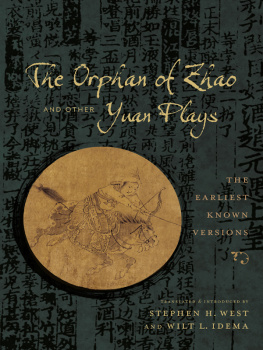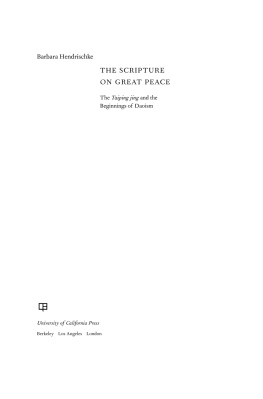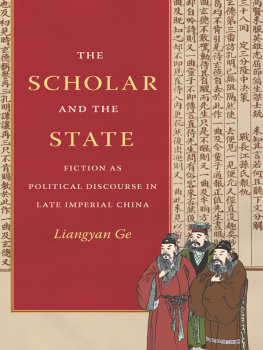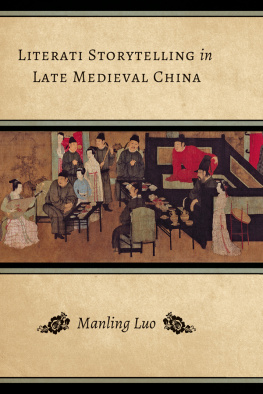In Pursuit of the Great Peace
SUNY series in Chinese Philosophy and Culture
Roger T. Ames, editor
In Pursuit of the Great Peace
Han Dynasty Classicism and the
Making of Early Medieval Literati Culture
Zhao Lu
Cover art: (1) A rubbing of the Great Peace: A design based on the rubbing with the word Great Peace substituting the original words on the aforementioned drawing. Designed by Lala Zuo. (2) A rubbing of the Classics with three scripts: A redrawing of the rubbing of Santi Shijing from the Palace Museum, Peoples Republic of China. Redrawn by Lala Zuo.
Published by State University of New York Press, Albany
2019 State University of New York
All rights reserved
Printed in the United States of America
No part of this book may be used or reproduced in any manner whatsoever without written permission. No part of this book may be stored in a retrieval system or transmitted in any form or by any means including electronic, electrostatic, magnetic tape, mechanical, photocopying, recording, or otherwise without the prior permission in writing of the publisher.
For information, contact State University of New York Press, Albany, NY
www.sunypress.edu
Library of Congress Cataloging-in-Publication Data
Names: Zhao, Lu, 1985 author.
Title: In pursuit of the great peace : Han Dynasty classicism and the making of early medieval literati culture / Zhao Lu.
Description: Albany : State University of New York Press, [2019] | Series: SUNY series in Chinese philosophy and culture | Revision of authors thesis (doctoral)University of Pennsylvania, 2013. | Includes bibliographical references and index.
Identifiers: LCCN 2018035997 | ISBN 9781438474915 (hardcover : alk. paper) | ISBN 9781438474939 (ebook)
Subjects: LCSH: ChinaIntellectual life221 B.C.960 A.D. | ClassicismChinaHistory.
Classification: LCC DS747.42 .Z453 2019 | DDC 931/.04dc23
LC record available at https://lccn.loc.gov/2018035997
10 9 8 7 6 5 4 3 2 1
To Kelsey and Sarah
Contents
Illustrations
Charts
Tables
Acknowledgments
A lthough many guides to writing acknowledgments tell me to keep them concise without strong emotive language, I find it impossible to do so and do justice to the people to whom I am in debt. Even with that said, the thanks I give and how much these people contributed to my book is still understated.
First, I express my deep gratitude to Paul R. Goldin, my PhD advisor. Through writing my dissertation and turning it into this current form, I have benefited from his insightful and carefully constructed arguments, succinct and clear writing style, upright work ethic, and a witty sense of humor. While granting me great liberty in choosing my topic, Paul always provided me with concrete guidance, helpful critiques, and practical suggestions. Without his constant and generous help, I would not be able to finish the dissertation, not to mention turning it into a book.
Special thanks to Nathan Sivin for his unfailing mentoring. A polymath, Nathan has taught me Chinese medicine, astronomy, Daoist studies, writing skills, German, and even how to format my dissertation. More importantly, his broad academic curiosity and vision of breaking down the boundaries between specialized fields continues to inspire me. This book took shape based on his vision that historians should account for as many aspects of history as possible in their research. It also took shape via weekly discussions with him, via his careful examination of every single word of my drafts, and via his belief in the importance of serving a larger audience.
I would also like to thank Randall Collins, my dissertation committee member. I have greatly benefited from his erudition in world intellectual history as well as his expertise in sociology. His sociological view shaped the theoretical skeleton of this book, and his suggestions based on a comparative perspective never failed to stimulate me and improve this project.
As a nonnative speaker of English, this book would be barely intelligible without many peoples help with my writing. Besides Paul and Nathan, my deepest gratitude goes to Sarah A. G. Basham and Kelsey Seymour, my language partners. They have patiently read through countless drafts since I started writing my dissertation until the final version. They identified any part that was unclear and always offered me means of clarification. Their criticism, ranging from my choice of word to the structure of a chapter, helped to bring this book to another level. Most importantly, they never settled with me on writing a good enough sentence because I am not a native speaker of English; they always urged me to strive for excellence.
Along the way, I became indebted to many people with whom I have had the honor to work and without whom the path would have been much darker. Michael Nylan gave me enthusiastic encouragement as well as practical suggestions that decisively turned the project around. Anonymous reviewer As meticulous comments have greatly improved the quality of the work. Anonymous reviewer Bs comments not only increased the readability of the manuscript but also put my decade-long anxieties toward English at ease. My editor Christopher Ahn bravely took on the project, and Chelsea Miller and the rest of the SUNY Press team vigorously pushed the project forward ever since. Zuo Lala visualized the central argument of my book and created the main image for the book cover, a stone stele of the classics with nothing but the Great Peace. Adam Smith and Barbara Hendrischke insightfully pointed out many logical fallacies in first drafts, which set straight the project in the very beginning. Constance A. Cook, Chang Chia-Feng, and Hon Tze-ki have provided tremendous moral support through the whole process. I am particularly thankful that Connie practically cornered me into sending my materials to SUNY. I am also very grateful for the timely support of Mark Csikszentmihalyi and Michael Puett.
I thank the International Consortium of Research in the Humanities (IKGF) at the University of Erlangen-Nuremberg and its director, Michael Lackner. Both have provided me great liberty to pursue my project as well as the stimulating environment where I had the chance to meet most of the aforementioned people. I am especially grateful for Michaels unceasing help, generous mentoring, and faith in me.
Last but not least, I thank Academia Sinica for allowing me to reprint a revised version of the article To Become Confucius: Political Legitimacy and Han Apocryphal Texts in the Case of Emperor Ming (r. AD 5875), Asia Major 28.1 (May 2015): 11544. I am particularly indebted to Lee Jenders prompt support.
Introduction
S criptures are an intriguing phenomenon in both the ancient and modern world. From the Talmud, Bible, and Quran to the Chinese classics,
This book concentrates on people who established their careers on reading and interpreting scriptures, their production of knowledge based on scriptures and their impact on society. It will focus on those who mastered a corpus of texts labeled classics, or jing , in the Han dynasty (205 BCAD 220). This is a conscious choice. Students of China have long relished the stimulating debates between thinkers from the time of Confucius to the dawn of the first Chinese empire; we have also been fascinated by the flourishing of literary writing, the booming of Daoist movements, and the spread of Buddhism in the third century AD. The period in the middle, however, remains a dark tunnel. The untamed and subversive Confucians and other thinkers entered this tunnel, and litterateurs and promoters of Daoist and Buddhist religions emerged from the other end. We know very little about the transformation process in this tunnel.

